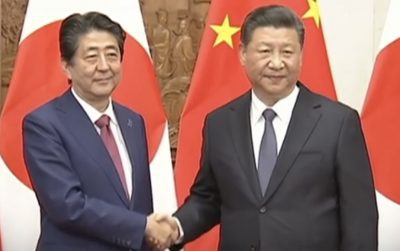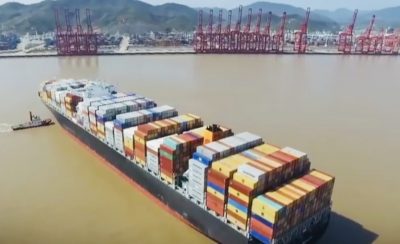Japan and its first wave of subsidies to help companies leave China: Covid-19 supply chain
Kanako Mita and Lee Jay Walker
Modern Tokyo Times

The coronavirus (Covid-19) economic convulsions will continue for a long-time to come. Of course, the size of the crisis depends on each individual nation. However, for Japan, it became apparent that over-reliance on China ushered in bottlenecks and generated many internal problems.
It should be stated that Japan isn’t enacting an anti-China stance. On the contrary, it is about the internal weaknesses of Japan during a major crisis. Therefore, the coronavirus crisis – just like the over-investment in Japanese stocks many decades ago – means the fear of too many eggs in one basket.
Japan announced subsidies of $563 million dollars to 87 business groups or independent companies. This subsidy will enable Japanese business ventures to set up new manufacturing plants in other parts of Asia – or to re-invest in Japan.
Thus the aim is to stem over-reliance on any individual nation – and not just aimed at China – in order to overcome severe bottlenecks in the supply chain. The manufacturing relocations and new production lines are working with the Ministry of Economy, Trade and Industry.

It is understood that 57 projects will witness re-investments in Japan. Hence, the other 30 projects will be spread between many Asian nations.
Iris Ohyama and Saraya are relocating production back to Japan. Thus this is a direct Covid-19 angle. Saraya makes hygiene products, while Iris Ohyama will start making facemasks in Miyagi prefecture. Hence, all materials of these facemasks will now be locally based and produced at the Kakuda factory.
In a past article by Modern Tokyo Times, it was stated, “Some sectors, including electronics, will not find it easy to wean itself away from China. Despite this, Japan can ill-afford to stand back and not implement new economic policies. Hence, the changed economic policy isn’t aimed directly at China in a malicious way. On the contrary, it is based on Japan’s over-reliance on components in China and other important areas.”
Overall, it should be noted that under Prime Minister Shinzo Abe, his nuanced approach towards China and the Russian Federation is more balanced. Thus political elites in Beijing and Tokyo will continue to forge other areas of mutual benefit. Similarly, China and Japan will continue to seek potent investment dealings outside the fear of respective economic weaknesses.

PLEASE DONATE TO HELP MODERN TOKYO TIMES
Modern Tokyo News is part of the Modern Tokyo Times group
DONATIONS to SUPPORT MODERN TOKYO TIMES – please pay PayPal and DONATE to sawakoart@gmail.com
http://moderntokyotimes.com Modern Tokyo Times – International News and Japan News
http://sawakoart.com – Sawako Utsumi personal website and Modern Tokyo Times artist
https://moderntokyonews.com Modern Tokyo News – Tokyo News and International News
PLEASE JOIN ON TWITTER
https://twitter.com/MTT_News Modern Tokyo Times
PLEASE JOIN ON FACEBOOK
https://www.facebook.com/moderntokyotimes